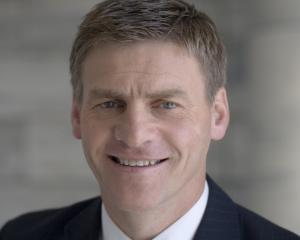He warned that increases in spending well beyond his own Government's "modest" plans of $1 billion extra a year would risk increasing interest rates and mortgages higher than they would otherwise go, and lifting the exchange rate.
"If a political party tells you they are going to spend a lot of money, ask them how much it is going to cost your mortgage."
Labour leader David Cunliffe rubbished the speech, saying it was clear Mr Key did not have a plan for the economy and blamed National for interest rate rises.
The Budget would confirm a "wafer thin" surplus, he told reporters after delivering a speech to the North Harbour Club.
Theoretically there could be some for tax cuts "but my message is it might be much smaller than people might think".
He said it would also show surplus in future years for either spending a little bit more or potentially returning a little bit more.
"But little is the operative word."
The Budget would contain no plans for tax cuts or changes in the tax brackets in the coming financial year or others.
The half-yearly opening of the books last December forecast an $86 million surplus after six years of deficit, followed by surpluses in the following years of $1.6 billion, $3.1 billion and $5.6 billion.
Mr Key said the Government would remain disciplined around government spending. New operating spending in its five budgets had averaged $250 million a year compared with Labour's $2.7 billion-a-year average.
He said any change to paid parental leave or parental tax credits would be in the Budget but if there were changes, they would be "modest".
With the economy back in growth, the Reserve Bank increased the Official Cash Rate last month for the first time since July 2010.
Mr Key said that rise was "a sign of strength" but that any rises brought on by higher government spending would be contributing to the problem.
Voters would ask whether government spending was part of the solution or part of the problem.
"At around $1 billion of new expenditure, we are part of the solution. At a lot more than that, we are part of the problem."
Mr Cunliffe said Labour would also run surpluses as it had in every year in the last Government.
National's failure to address the underlying issues of the economy meant New Zealanders would be paying more for their mortgages.
"They are fiddling while interest rates, rents and mortgages rise," he said.
"The Government has ignored the major issues for the economy: a distorted tax system, a pitiful savings record, funding superannuation and outdated monetary policy settings."
Labour's "economic upgrade" would focus on investment, innovation and industry development.
- Audrey Young of the New Zealand Herald





